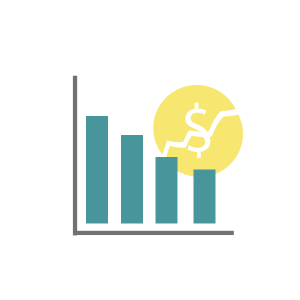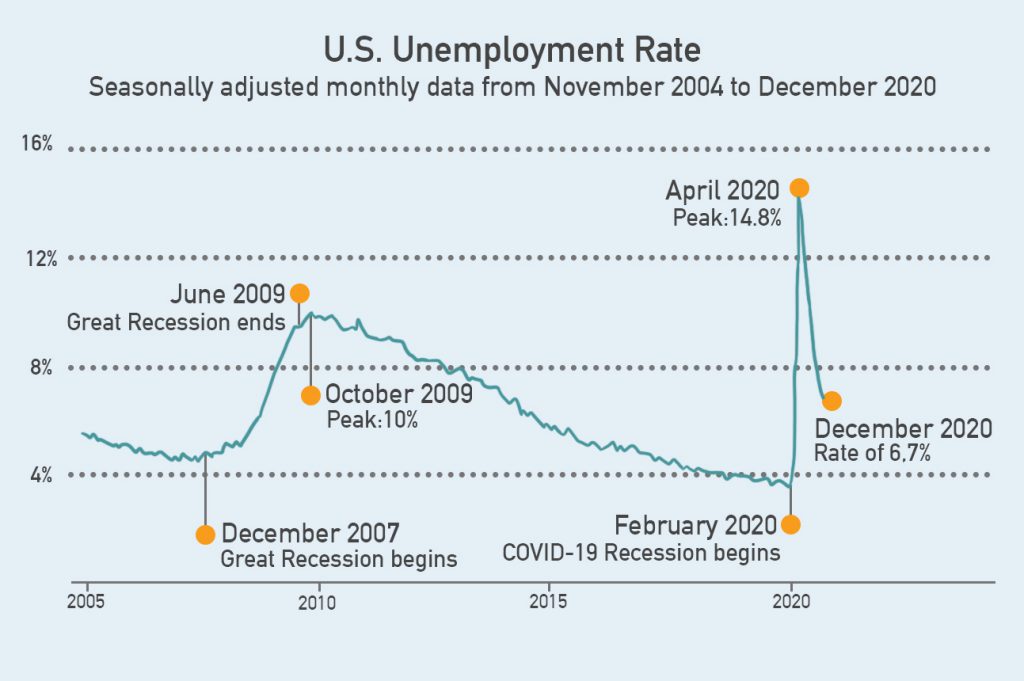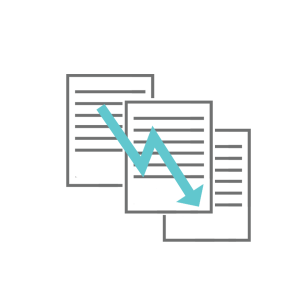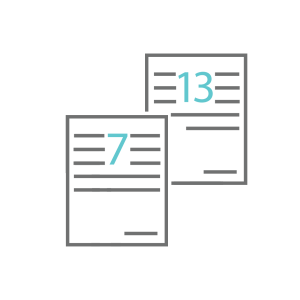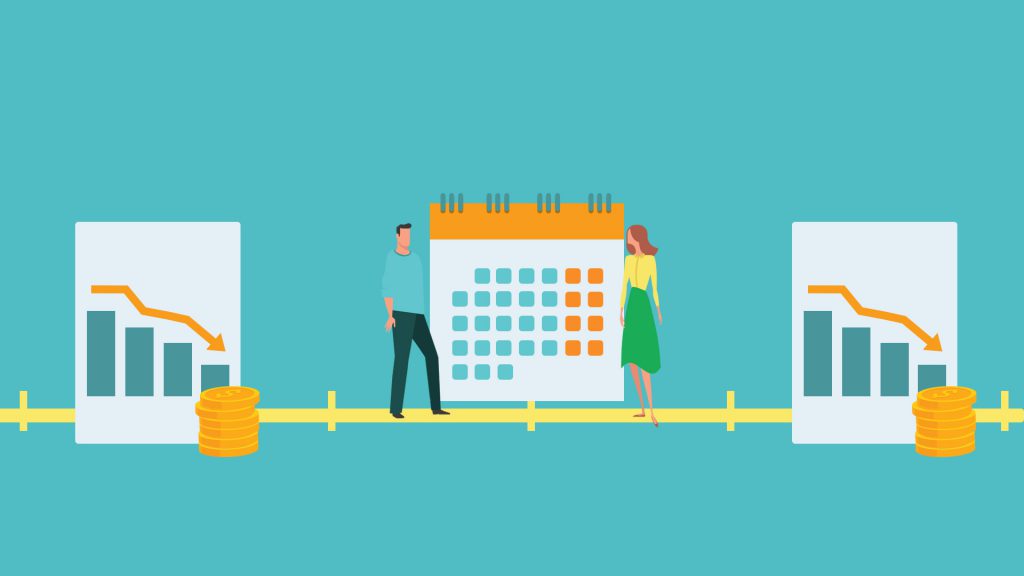
A question people often have is what happens if they need to file bankruptcy more than once? Many people just assume declaring bankruptcy is a once-in-a-lifetime last resort action they can take only once. In reality, there is no legal limit to how many times you can file bankruptcy. There are, however, very strict rules around how often you can file that vary by the type of bankruptcy you file.
Bankruptcy 101: Differences Between Chapter 7 and Chapter 13 Cases

The two types of bankruptcy most individuals file for is either a Chapter 7 or a Chapter 13. A Chapter 7 bankruptcy is usually the best choice for people who have a lot of unsecured debt, such as credit card debt, personal loans, utility bills, medical bills, and so on that has become unmanageable. Those unsecured debts will essentially be wiped away entirely if you don’t have substantial assets that could be sold off to pay creditors some or all of what you owe.
A Chapter 13 bankruptcy, on the other hand, is sometimes the best option if you just need to put everything on pause long enough to get caught up on debt payments. In this type of bankruptcy, you come up with a court-approved payment plan over the course of 3-5 years. At the end of the payment plan period, you’re caught up and in a better position to keep it that way moving forward.
With those details explained, below are the different scenarios for declaring bankruptcy more than once:
Consecutive Chapter 7 Bankruptcy Cases: 8 Years
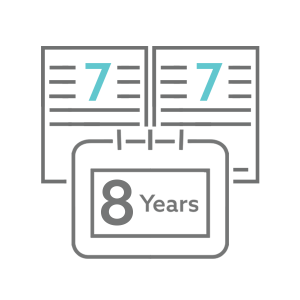
Bankruptcy laws have been modified over the years to discourage frequent filings, especially for Chapter bankruptcy since it typically results in creditors receiving none of the money you owe them. In other words, bankruptcy laws aren’t meant to enable people to run up mountains of credit card debt only to wipe it all away by filing for Chapter 7 over and over. For this reason, if you get a Chapter 7 bankruptcy discharge, you are not eligible for another until at least eight years has passed from the date of your previous Chapter 7 filing.
Chapter 7 Followed by a Chapter 13 Bankruptcy: 4 Years
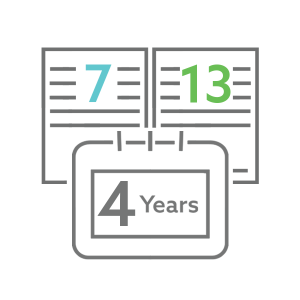
Because a Chapter 13 typically involves paying most if not all what you owe creditors, you can file a Chapter 13 after a Chapter 7 sooner than trying to do consecutive Chapter 7 cases. If you receive a Chapter 7 discharge, you are eligible to attempt a Chapter 13 bankruptcy filing if at least four years has passed from the previous Chapter 7 case.
Consecutive Chapter 13 Bankruptcy Cases: 2 Years
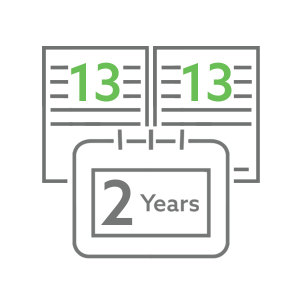
The least amount of time possible between consecutive bankruptcy filings is with a Chapter 13. After a Chapter 13 discharge, you could conceivably attempt another in as little as two years from the date the first Chapter 13 was filed. However, most Chapter 13 payment plans take place over the course of 3-5 years, so a two-year interval is very optimistic because receiving a discharge before the three-year minimum repayment plan is highly unlikely.
Chapter 13 Followed by a Chapter 7 Bankruptcy: 6 Years
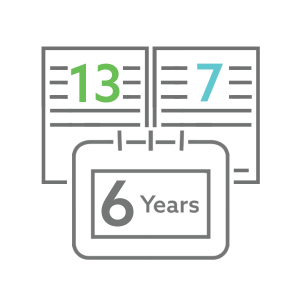
This one is a little complicated because there are exceptions to the general rule. If you receive a Chapter 13 discharge, you are typically going to have to wait until at least six years have passed from the date of the Chapter 13 filing before attempting a Chapter 7 case. The exceptions to this six-year time interval have to do with how well you did on your Chapter 13 payment plan relative to your debts. If you paid back 100% of your unsecured debts to creditors (or even just 70% in some cases) in a Chapter 13 case, the time interval might be waived entirely. Because a Chapter 13 payment plan can last as long as five years before receiving a discharge, you could be eligible to file a Chapter 7 in as little as a year after the discharge because the time interval begins on the date the previous Chapter 13 was filed (not the discharge date).
When You Need to Finance a Car in Spite of Bankruptcy
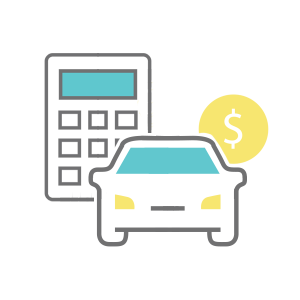
Day One Credit helps people find a bankruptcy car loan, which is often the best way to finance a car purchase when you have an active or recently discharged bankruptcy on your credit report. You can fill out our quick online application that we will then share with our strong network of top lenders who are willing to work with bankruptcy customers. We go the extra mile to help anyone find a bankruptcy car loan if they meet our basic eligibility criteria. The bankruptcy car loans we find for you often require little or no money down at all. A bankruptcy care loan may also be an effective way to begin rebuilding your credit during and after bankruptcy when many lenders won’t give you the time of day. If you have questions about how all this works, please visit our Common Questions page to see if your answers are there, but also feel free to give us a call at 855-475-4725. We’re here to help you understand your options for getting the car you need!



